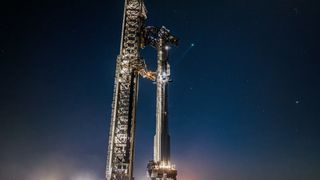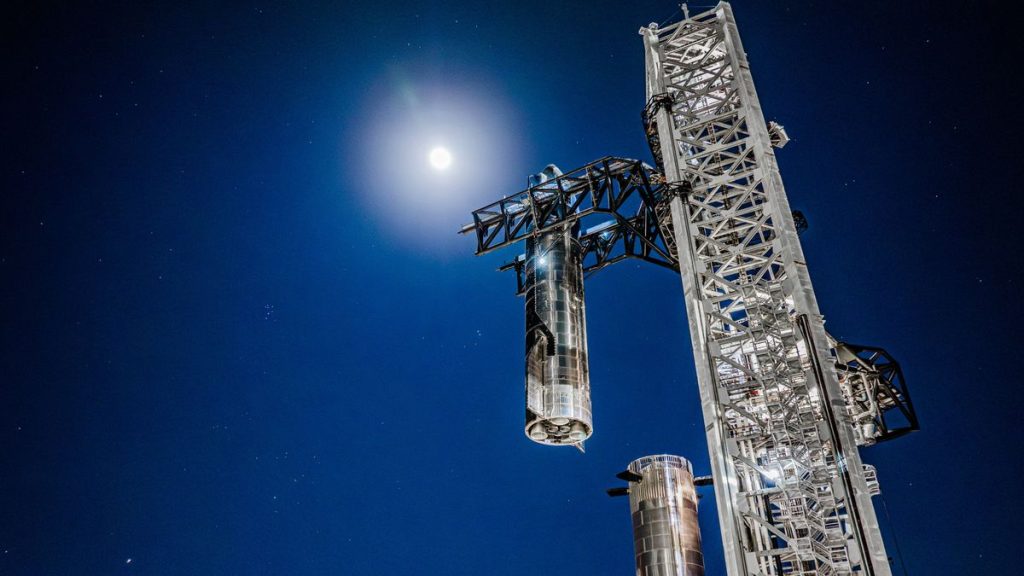SpaceX’s Starship megarocket has come together ahead of its sixth-ever test flight next week.
SpaceX has stacked Starship‘s two elements — the Super Heavy booster and Ship upper-stage spacecraft — on the orbital launch mount at its Starbase site in South Texas.
The company confirmed the milestone in a Friday night X post, which featured four photos of the stacking process and its aftermath.

That post also announced a date change for the flight: It has slipped from Monday (Nov. 18) to Tuesday (Nov. 19). Liftoff will occur during a 30-minute window that opens at 5 p.m. EST (2100 GMT; 4 p.m. local Texas time).
Super Heavy and Ship made the trip to the launch pad separately earlier this week. Stacking them created a vehicle nearly 400 feet (122 meters) tall — the biggest and most powerful rocket ever built.
Related: Starship and Super Heavy explained
SpaceX is developing Starship, which is designed to be fully and rapidly reusable, to help humanity settle the moon and Mars.
NASA is already a customer; the space agency selected Starship to be the first crewed lander for its Artemis program of lunar exploration. If all goes according to plan, Starship will deliver the Artemis 3 astronauts to the lunar surface in September 2026, in the first crewed moon landing since Apollo 17 in 1972.
Starship’s previous five flights occurred in April and November of 2023 and March, June and October of this year.
Flight 5 provided lots of excitement, as Super Heavy came back to Earth for a touchdown next to Starbase’s launch tower, which caught the giant booster using its “chopstick” arms. SpaceX will try to duplicate this epic maneuver on Flight 6.
Ship, meanwhile, will splash down in the Indian Ocean, as it did on Flight 5.

